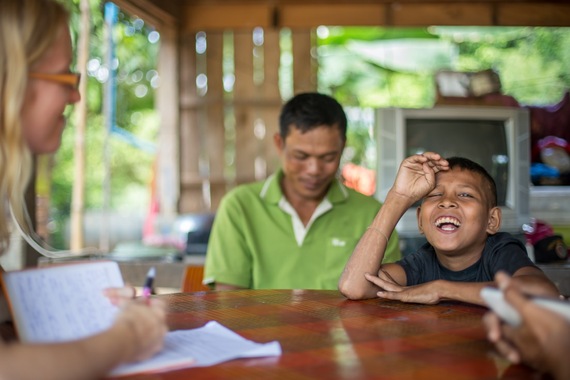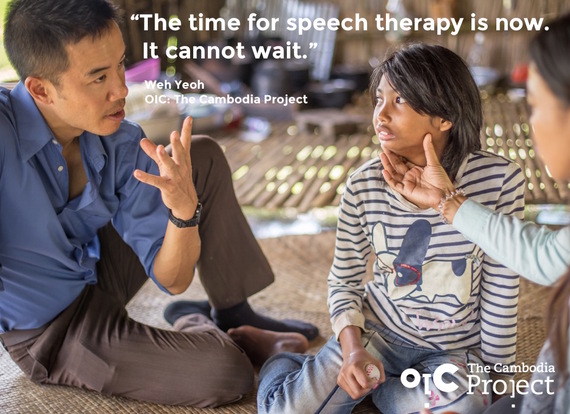When I was five years old, I sat next to a child who was different than me. Not worse, not better, just different. At a young age, I learned the importance of this difference, and my life has never been the same since. Yet, there are children all around the world who do not have this chance. This is how we can change this.
I've spent most of my career working with children with disabilities. People often ask: "what motivates you to work with these kids?" It took me years to work it out, but I trace it back to a key moment growing up.
I grew up in suburban Australia, in an average neighborhood, and went to an average neighborhood school. On my very first day in school, my teacher, Mrs. Pickering, sat me next to a boy named Roger. Roger had thick, Coke-bottle glasses, and scrunched his nose to squint whenever he concentrated. I remember clearly the wrinkle lines between the two lenses of his glasses.
"Roger can't see colors," Mrs. Pickering told me. "But that doesn't mean he can't join in with the rest of the class. I need you to help him pick the correct pencils when we are coloring in. Can you do that?"
I nodded. For the rest of the year, when we were coloring in the sky, I picked out the blue pencil for him. For the grass, the green pencil.
Roger and Mrs. Pickering taught me valuable lessons. Not everyone is the same. We all do things differently. And sometimes, all it takes is a little bit of help for someone to join in.
Out of this story, who is the lucky one? Me. I learned something incredibly valuable as a young child, simply by sitting next to someone different. And yet, across the world, I fear that most children do not have the same opportunity.
According to UNICEF, 90 percent of children with disabilities in poor countries do not attend school -- 90 percent! This is an unforgettable and unforgivable statistic. In my country of origin, Australia, there are systems in place to get children with disabilities into schools. But without the system including them, what chance do these children in poor countries have?
The good news is that there are simple, tangible ways in which we can get children like Roger sitting next to children like me. Inclusive education is all about getting all children into classrooms, by creating an environment that is accepting of difference.
Simple adaptations like ramps and rails can make a big difference to children who have physical disabilities. Braille and sign language, amongst other things, allow children with visual and hearing impairments to participate. As importantly, attitudes of teachers and other classmates are vital. Children with disabilities should never be seen as a burden. As Mrs. Pickering taught me, a slight shift in attitude can enable an inclusive environment where all children can thrive.
Often, the most ignored children are those with non-physical disabilities. Those like Roger, who, at first glance do not appear to be any different. By focusing our efforts on these children, we can get the most vulnerable children into schools. But to do this, it often takes individuals to champion the rights of these children.
In my work in Cambodia, we aim to take the most vulnerable children and make them seen and heard. Children like Ling, who would never have had the opportunity to go to school without support. And yet, just as with Roger, a little bit of support can go a long way. At the age of 12, Ling is going to school for the first time. But Ling isn't just attending, he's excelling. He's coming second in his class.
In the coming weeks, I'll have the opportunity to stand up in front of the United Nations and Cambodian government and ask them to support children like Ling in a way that could change the country's entire approach to supporting people with disabilities. To put together a strong case for action, we need you to stand with us. Because nothing has ever been possible without the support of individual people.
Our campaign to celebrate difference is here:
http://startsomegood.com/unseen_unheard
Will you stand with us, as we ask the UN and Cambodian government to ensure all children are seen and heard?

